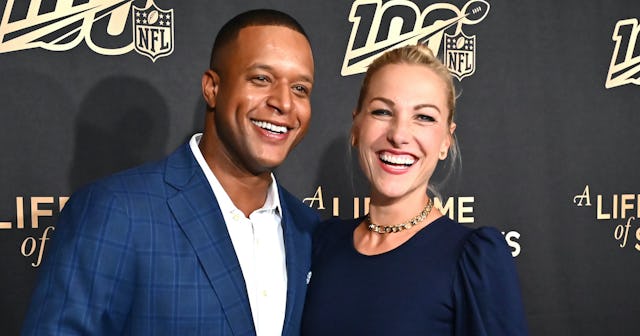Craig Melvin On Teaching Black History To His Biracial Children

The NBC and Today Show host, currently on assignment at the Beijing Olympics, shares the complexities of teaching Black history to his own biracial kids.
Black history isn’t only relegated to the month of February in the Melvin-Czarniak family. The broadcast journalist, who is Black, and his wife, who is white, make it a point to find “teachable moments” to talk to their kids about race throughout the year.
In an essay published on Today.com, Melvin identifies hearing his son say, “Sibby is white like Mommy, and I’m brown like Daddy,” as a wake-up call that they needed to be talking more openly about race with their kids. Melvin says he and his wife want their children to know that they are Black and white, and to have a sense of Black history that goes beyond MLK Jr.’s “I Have A Dream” speech and includes the many painful parts of our nation’s past.
Melvin writes movingly of the struggle to share this history in a way that is both accurate and age-appropriate—and that won’t be devastating. The parents are still uncertain how to present the topic of slavery, for example.
“How do you explain to two bright-eyed, multiracial kids who live pretty charmed lives that there was a time in this country where people who look like Daddy would have been shackled and working for people who look like Mommy?”
Melvin doesn’t claim to have the answers to impossible questions like this one, but he believes in the importance of Black History Month and the inclusion of Black history throughout the year.
“It’s not about promoting white guilt; what it’s about—or what it should be about—is making sure that the story of our country is complete,” says Melvin.
Melvin wants his kids to know about their grandmother “being the first in her high school to integrate, and how hard that was,” and to celebrate themselves being “seconds and thirds,” while hoping that these distinctions soon grow obsolete.